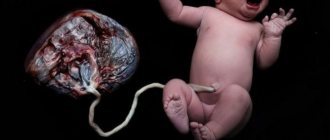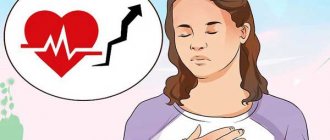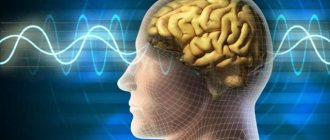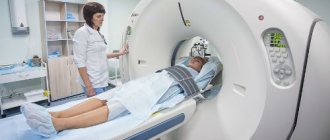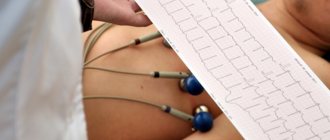An occasional headache is familiar to all people, since it can appear as a consequence of ordinary fatigue or the body’s reaction to changes in meteorological conditions. Usually this condition does not require medical intervention and stops on its own, you just need to rest a little or wait for the weather to change. However, constant pain in the temples, forehead or eyes is a clear reason to think about the state of your own health, since regular pain in the head (chronic cephalgia) can be one of the symptoms of a serious illness.
Causes of headaches
Insufficient time for rest, nervous stress, city noise, and an overly intense rhythm of life are often the root causes of constant headaches. If the cause of stress or discomfort is eliminated for a certain period of time, your health will improve significantly. While persistent cephalgia may be a sign of a serious disease that requires medical intervention:
- allergy;
- high intracranial pressure caused by vascular diseases;
- migraine accompanied by nausea, sound and light sensitivity;
- hematomas in the head caused by injury;
- tumor formations;
- aneurysms;
- the presence of inflammatory foci in brain tissue;
- nasal congestion, infectious diseases of the respiratory system;
- critical days of the menstrual cycle or pregnancy;
- damage to the trigeminal nerve.
Chronic headaches in the temporal region and forehead with osteochondrosis of the cervical spine, as a rule, are chronic. This is a consequence of pinched vessels supplying the neck and irritation of the nerve endings. After the underlying disease is cured, the patient’s well-being improves. If no other reasons related to physiology can be traced, the whole issue may be a disorder of the vegetative-vascular system.
Non-hazardous conditions
Cephalgia often manifests itself during pregnancy, often at the beginning, as a result of hormonal imbalance, a drop in immune defense occurs, and the emotional reaction becomes difficult to control. Women are often under mental stress, feel pressure drops, forgotten chronic diseases appear, and catch a cold.
These reasons influence the appearance of pain in the temples and forehead, which has an aching, squeezing nature. The following factors can worsen the situation:
- fatigue, poor sleep;
- change in climate zone;
- unhealthy diet (consumption of sweets, citrus fruits, strong drinks, overeating, hunger);
- physical stimuli (bright lights, smells, sharp sounds).
The cause of painful sensations can be various everyday moments associated with prolonged exposure to the open air in the heat or, conversely, in the cold, in a strong wind.
If you wear contact lenses, they can lead to headaches or dry eyes. Also, a person’s well-being is influenced by what he eats. By eliminating harmful components from the diet (smoked meats, processed foods, fast food, alcohol, caffeine), the feeling of discomfort may go away on its own.
Dangerous reasons
When you first seek medical help with a complaint of headaches, your blood pressure is usually checked, since this is the most likely cause for cephalalgia. The cause of high blood pressure (BP) can be an inactive lifestyle and changes in atmospheric conditions, lack of sleep, long-term drug therapy, troubles, and unhealthy habits.
Headache can be caused by a common cold, as well as various infectious diseases. Meningitis is considered among the most dangerous. This disease leads to inflammation of the meninges and can only be treated in a hospital.
Severe anomalies include benign or malignant neoplasms in the skull. At certain stages, the tumor causes severe pain in the head. At the first suspicion of this disease, it is necessary to conduct a neurological diagnosis and contact an oncologist.
What to do if you have a headache when you move your eyes?
Headache when moving the eyes and at rest (whether it is pain in the eyes when reading or working on a computer) is an extremely unpleasant condition for a person. Therefore, it is urgent to take a painkiller from the group of non-steroidal anti-inflammatory drugs. The next step in helping a person is to see a doctor. If there are signs of a general infectious disease (flu, acute respiratory infections), then a general practitioner will be able to provide adequate medical care. In other cases, consultation with an ophthalmologist and often a neurologist is necessary. If the cause of pain in the eye is a foreign object or injury, in no case should you rub your eyes or try to reach such an object directly with your fingers. It is necessary to rinse your eyes generously with clean water. If this does not produce results, seek medical help immediately.
Research methods
Headache is a symptom, not a pathology. This symptom is not specific, and for this reason, its presence is difficult to make a correct diagnosis. It is necessary to take into account the accompanying manifestations and perform diagnostics using appropriate equipment to identify the underlying cause of this condition. The following procedures are prescribed for diagnosis:
- Blood pressure measurement.
- MRI of the brain.
- Ultrasound of the vessels of the neck and head.
- Laboratory blood analysis.
- Cardiogram.
- CT scan of the skull and brain.
- Dopplerography.
Neoplasms
Brain cancer is a very terrible pathology. In the initial stages, pronounced manifestations may be absent. Any neoplasms developing in the cranium increase intracranial pressure and ultimately a headache begins, vomiting appears at the peak of the headache, which does not bring relief, mainly in the early morning hours, paresis and paralysis are often observed , but it all depends on the stage and location.
If the tumor is located in the frontal lobe of the brain, patients may not feel its presence for a very long time. Sometimes the first sign is not pain, but decreased vision. In other areas, tumors can cause various neurological disorders - seizures, paralysis, speech disorders. Patients often complain of nausea and sleep disturbances. An oncologist diagnoses the disease.
Malignant tumors grow very quickly, so if you often have headaches for an unknown reason, it is better not to delay contacting an oncologist. An MRI will quickly help make the correct diagnosis or, conversely, rule out the worst option.
Why do blood vessels rupture?
The main cause is arterial hypertension, especially if untreated or during breaks in taking antihypertensive drugs. The vessels physically cannot withstand the pressure that blood exerts on their walls. A vessel breaks through at the site of thinning or damage, this happens in the presence of an atherosclerotic plaque, congenital aneurysms, head injuries, the use of certain medications that prevent blood clotting, tumors and encephalitis. Another important cause of rupture is arteriovenous malformations, when small arterial and venous vessels do not end in capillaries, but are intertwined into one large ball. Such congenital pathology can be detected during a preventive examination. If a person knows about it, he behaves more carefully and avoids unnecessary risks.
Nature has protected the brain as much as possible from damage, providing it with a mass of protective and backup systems. At a young age they work, but in the second half of life they don’t always work. Therefore, it is advisable that people at risk undergo an annual examination by a neurologist.
At CELT you can get advice from a neurologist.
- Initial consultation – 4,000
- Repeated consultation – 2,500
Make an appointment
The following people are at high risk of developing hemorrhagic stroke:
- hypertensive patients, they need to take medications daily;
- overweight people - the body grows approximately 1 kilometer of blood vessels per 1 kg of excess weight;
- people with high levels of cholesterol, namely low-density lipoproteins, which form atherosclerotic plaques on the vascular wall;
- people who eat insufficient amounts of protein and do not have the “building material” for complete tissue repair;
- those under chronic stress, often suffering from physical or emotional stress;
- alcohol abusers and smokers;
- those suffering from diabetes or heart disease;
- suffering from chronic infections that destroy the vascular wall - lupus erythematosus, vasculitis;
- people who constantly take medications to reduce blood viscosity;
- having direct relatives who died from cerebral hemorrhage.
Diseases of the ENT organs
Pain syndrome may appear due to inflammation of the frontal sinuses.
Sinusitis is characterized not only by a severe runny nose with purulent discharge, but also by very sharp pain along with a feeling of pressure on the eyeballs. Since the inflammatory process occurs near the brain, this disease is quite dangerous.
With frontal sinusitis, when there is inflammation of the mucous membrane of the frontal sinuses, pain occurs in the morning. To exclude this pathology, you need to consult with an ENT doctor.
Types of strokes
Depending on which part of the brain the hemorrhage occurred, there are 4 types of stroke:
- Intracerebral or parenchymal, when the spilled blood saturates an area of the brain. In turn, they also have their division into:
- hemispheric, when an area of the hemispheres is affected;
- subcortical, located under the cortical (gray) matter of the brain;
- hemorrhage in the cerebellum, where the balance centers are located;
- hemorrhage in the brain stem, where the respiratory center and the area that is responsible for the functioning of the heart and maintaining the pressure in the vessels necessary to support life are located.
- Subarachnoid (bleeding into the space between the meninges).
- Ventricular (hemorrhage into the ventricle of the brain).
- Mixed: ventricular-parenchymal, subarachnoid-parenchymal, parenchymal-ventricular-subarachnoid and so on.
Survival depends not only on the location of the vessel rupture, but also on how much blood was released. Small hemorrhages are considered to be those in which from 1 to 20 ml are poured out, medium - from 20 to 50 ml, large - more than 50 ml. The greater the amount of blood shed, the more severe the consequences. A stroke is almost always accompanied by disturbances in cardiac activity, breathing and swallowing, oculomotor disturbances, and changes in the size of the pupils.
How is frontal headache treated?
A correctly found cause allows the doctor to prescribe adequate therapy.
Most often used in the treatment of frontal pain:
- means that help normalize blood pressure;
- antimicrobial treatment (antibiotics and sulfonamides) – for infectious diseases and sinusitis;
- drugs used in neurological practice (improving nerve conduction, eliminating inflammation);
- painkillers, as well as medications that have an anti-inflammatory effect;
- psychotropic medications (tranquilizers, antidepressants);
In case of traumatic, purulent pathology, surgical treatment is carried out if necessary. Additionally, when treating headaches in the forehead, psychotherapeutic techniques, acupuncture, and massage of biologically active points on the head are used. For preventive purposes, stay in the fresh air and an active lifestyle are prescribed. Treatment of the consequences of serious illnesses is carried out in specialized sanatoriums.
The text was checked by expert doctors: Head of the socio-psychological service of the Alkoklinik MC, psychologist Yu.P. Baranova, L.A. Serova, a psychiatrist-narcologist.
CAN'T FIND THE ANSWER?
Consult a specialist
Or call: +7 (495) 798-30-80
Call! We work around the clock!
Pathologies of the nervous system
Migraine
This is a common disease that most often affects women. A distinctive feature of migraine is its localization and pulsating nature.
Migraine usually begins with pain in the temple, which is one-sided, and the headache is often localized in the occipital region. In most cases, pain is aggravated by sounds of any volume, bright light, or vibrations.
Sometimes attacks are triggered by certain foods rich in serotonin, such as red wine, cheese, fish and chocolate.

